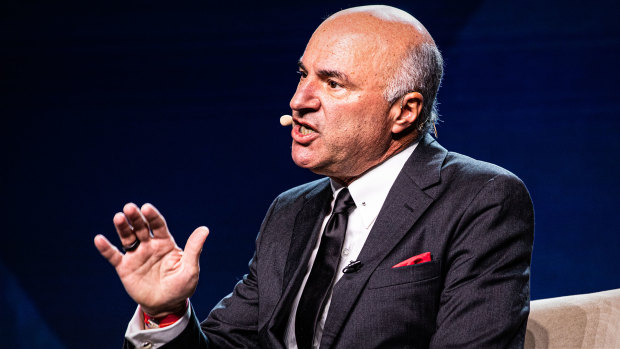
Well-known 'Shark Tank' investor Kevin O'Leary had more to say about the Bud Light controversy on a recent episode of "The Daniel Mac Show." In the past, O'Leary has criticized the once-popular beer brand for misreading their customer base -- but as he tells companies how to avoid the same debacle, he misses a major point.
"What I have learned is don't listen to the noise, find the signal," he told podcast host Daniel Mac. It's easy to think of "noise" in this instance as a vocal minority of consumers lashing out on social media. But that's not what he's calling noise.
DON'T MISS: Top Investor Dan Ives Knows Which Sector To Invest In For The Second Half Of 2023
"If you are a brand (and you want) everyone to use your product or service, you shouldn't even talk politics. And I don't care what side of the fence you're on. You're gonna piss off 50% of your constituency."
First off, Mr. Wonderful's math here is problematic. Assuming any political issue in America is a 50/50 even split is laughable. Even LGBTQ+ issues, which are the center of the greater "company culture wars" controversies, vary widely in public opinion. O'Leary's blind statistical shot-in-the-dark doesn't even account for consumer beliefs.
For example, one could guess that the two companies making the most headlines about reactions to "anti-woke" boycotts, Bud Light and Target, have vastly different consumer demographics. Giving what could be a minority of, say, Target shoppers the speaking power of half or more is how these companies ended up in this PR nightmare in the first place.
More ‘Shark Tank’:
- 'Shark Tank' Investors Disagree On the Value of Running a 'Woke' Business
- Mark Cuban Has Heated Exchange With Right-Wing Sports Analyst on NBA's Bud Light Comparisons
- Kevin O'Leary Says Mark Zuckerberg's Threads is 'Unprecedented'
But the greater issue in his argument -- and the stance many others have taken -- is built on the idea that acknowledging the existence of some people is inherently political. "To actually lose 25% market share in 36 hours, that's never been done before," O'Leary tells Mac when the host asks about "political correctness". "Somehow (Bud Light and Target) did it because they got involved in something that has really nothing to do with beer."
The initial spark of this conversation comes from a promotional partnership between Bud Light and beloved TikTok star Dylan Mulvaney. Mulvaney is best known for her viral social media series "Days of Womanhood" in which she shares her experiences as a transgender woman. But save for a quick mention of the series, the video is exclusively about Bud Light and the sporting event known as March Madness.
"Your job (as a brand) is not to teach people social mores are getting into debates about gender neutrality or talk politics," O'Leary said, alluding to the video made by Mulvaney. "The minute you do that you're lost. That's noise. That's not your brand."
The video makes no mention of gender, morality, or politics -- despite the numerous anti-trans and anti-LGBTQ laws that have been proposed over the course of the last year. The promotional video is literally about beer.
So is Mulvaney, simply by way of existing and promoting her own brand, now a political figure? She shouldn't be. By this line of reasoning, anyone with any identity that diverges from the mainstream runs the risk of "politicizing" an ad campaign just by being in it. After all, it happened to Miller Lite, too.
So what's the defacto solution here? Should companies only advertise with and to straight, white, cis-gender men? For brands, it may sound like the safer route -- but it's leaving a lot of consumers' money on the table.
There's no proof that Bud Light's astronomical dip in sales is directly related to the conservative boycott. It could be a combination of right-wing vitriol and a damaged public image after mishandling the situation. O'Leary's tips for brands on "ignoring the noise" might be the noise that needs to be ignored moving forward.







